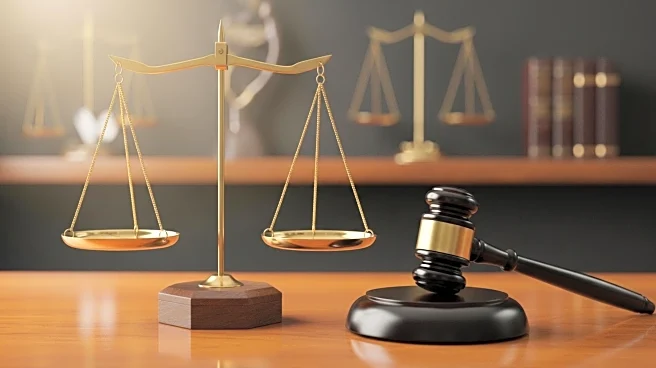What's Happening?
Karen Read, recently acquitted in the death of Boston police officer John O’Keefe, has publicly announced her intention to pursue civil lawsuits against those she claims framed her. In her first public interview since the acquittal, Read expressed defiance towards Massachusetts prosecutors, stating, 'You lost big time.' Her attorney, Alan Jackson, confirmed that they are preparing a comprehensive civil case targeting the Massachusetts State Police, the Norfolk County District Attorney’s Office, and other individuals involved in the investigation. Read, who faced multiple charges including murder, was ultimately found not guilty of all homicide-related charges but guilty of driving under the influence. She has faced significant personal losses, including her career at Fidelity and her home, which she had to sell during her trials.
Why It's Important?
The case has significant implications for the Massachusetts legal system and the community of Canton, where the incident occurred. Read's acquittal and subsequent civil lawsuits could lead to increased scrutiny of police and prosecutorial conduct, potentially prompting reforms. The case has already led to calls for an independent review of the Canton Police Department, highlighting procedural errors in the investigation. The outcome of Read's civil lawsuits could impact public trust in law enforcement and the judicial process, especially if systemic issues are revealed. Additionally, the wrongful death lawsuit from O’Keefe’s family remains pending, which could further influence public perception and legal proceedings.
What's Next?
Read and her legal team are considering both state and federal actions in their civil lawsuits, with no options off the table. The Massachusetts State Police have launched an internal investigation into the conduct of lead homicide detective Michael Proctor, who was dismissed for misconduct. The community of Canton may continue to push for police department reforms based on the findings of the independent audit. Read's plans to write a book about her experiences could also shape public discourse around the case and its broader implications.










